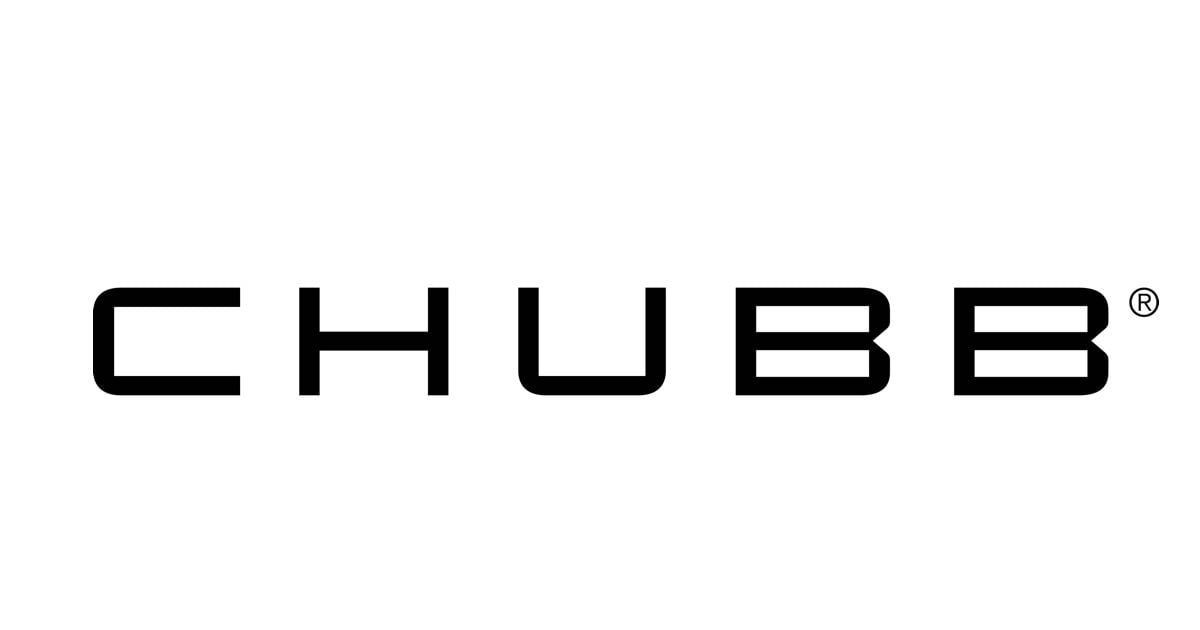Key takeaways
Chubb, NJM and The Andover Companies received the highest ratings in our analysis of home insurers in Connecticut.
USAA is the best cheap insurer in Connecticut, with a star rating of 4.8 and an average annual premium of $1,100.
Chubb, NJM and The Andover Companies are the best home insurance companies in Connecticut, according to our analysis.
To help you find the best home insurance in Connecticut, we gathered and analyzed data from insurance companies across the state. These are the insurers that earned 4.5 stars or more.
Rates are based on a sample homeowner with no recent claims, $300,000 of dwelling coverage, $300,000 of liability coverage and a $1,000 deductible.
Company | NerdWallet star rating | Average annual rate |
|---|---|---|
Not available | ||
Not available | ||
$2,205 | ||
$1,525 | ||
Not available | ||
$2,325 | ||
Not available | ||
USAA* | $1,100 | |
*USAA membership is open only to active military, veterans, some federal employees and their families. | ||
Get home insurance quotes in minutes
Answer a few questions to see custom quotes and find the right policy for you.The best home insurance companies in Connecticut
Below are more details about the best homeowners insurance companies in Connecticut.
Note: Some insurance companies included in this article may have made changes in their underwriting practices and no longer issue new policies in your state.

Chubb
- Far fewer consumer complaints than expected for a company of its size.
- Standard coverage includes features that many companies offer only as extras.
- Perks to help you protect your home.
- Most consumers can't get a quote online and will instead need to contact a local agent.
Chubb caters to affluent homeowners, offering coverage other insurers often charge extra for. For instance, the company’s policies include extended replacement cost coverage for the structure of your home, which is useful in case it costs more than your dwelling limit to rebuild your home. Chubb’s standard policies also cover water damage from backed-up sewers and drains.
Chubb policyholders with secondary or seasonal homes in Connecticut are eligible for the company’s Property Manager service at no charge. With this service, a Chubb representative will check your home after a hurricane and report its condition to you. They can also submit a claim on your behalf.
» READ MORE: Chubb homeowners insurance review

NJM
- Includes coverage other companies charge extra for.
- Very low rate of consumer complaints.
- Many extra coverage options available.
- No app to manage your policy.
NJM offers standard coverage that many other companies charge extra for. For example, NJM will pay the full cost to rebuild your home even if it’s more than your dwelling limit. (Not all companies offer this, and even fewer include it with standard policies.) It will also pay enough for you to buy brand-new replacements for your belongings if they’re stolen or destroyed.
NJM also stands out for customer service. It receives far fewer complaints than expected for a company of its size, according to the National Association of Insurance Commissioners. This suggests NJM’s customers are happy with the service they receive.
» READ MORE: NJM homeowners insurance review

Andover Companies
- Far fewer consumer complaints than expected.
- Includes more generous dwelling and personal property coverage than most insurers.
- Many additional coverage options to choose from.
- Limited online experience.
The Andover Companies’ home insurance generally comes with more coverage than a standard home insurance policy provides. In particular, Andover stands out for providing guaranteed replacement cost coverage for most homes. This means Andover will pay to rebuild your home after a covered claim, no matter what it costs.
Most Andover policies also include replacement cost coverage for your personal belongings, which means you’ll get enough to buy brand-new stuff after a covered claim. You can add coverage for valuables like jewelry or firearms, or to replace refrigerated food you have to throw out after a covered power outage.
» READ MORE: Andover Companies homeowners insurance review

Amica
- High customer satisfaction ratings and low consumer complaints.
- Platinum Choice package offers extra coverage.
- Dividend policies can return a portion of your premiums.
- You can start a quote online but may have to finish the buying process by phone.
Amica shines when it comes to customer service. It gets very few complaints compared to other insurers of a similar size, according to the NAIC. Amica also earned high marks in two recent J.D. Power surveys about home insurance and customer satisfaction.
The company stands out for its broad range of coverage options. For example, you can customize your policy with extra coverage above your dwelling limit. You may also be able to add coverage for identity theft or damage from backed-up drains.
» READ MORE: Amica homeowners insurance review

Cincinnati Insurance
- Various coverage options.
- Far fewer complaints than expected for a company of its size.
- Coverage available for higher-value homes.
- No online quotes.
- Very little information on website.
If you want to support companies that value sustainability, Cincinnati Insurance may be worth a look. In recent years, the insurer has reduced fossil fuel emissions from both its facilities and company vehicles. When you buy Cincinnati home insurance, you may be able to add a “green upgrade” endorsement. With this coverage, you can use eco-friendly materials to repair or rebuild your home after a claim.
The company offers a variety of other options, including comprehensive coverage for high-value homes. You may also be able to add coverage for things like identity theft, personal cyber attacks or certain types of water damage.
» READ MORE: Cincinnati homeowners insurance review
State Farm
- User-friendly website.
- Agents offer personalized service.
- Policies generally include extra coverage for your home’s structure.
- Below average for claim satisfaction in a recent J.D. Power study.
As America’s largest home insurer, State Farm stands out for its long list of coverage options. Its policies generally include extra dwelling coverage in case it costs more than expected to rebuild your home.
You may be able to add coverage for things like identity theft and water damage from backed-up drains. Another option may be to add an inflation guard rider to your policy. This automatically increases your policy limits to keep up with rising costs.
State Farm offers a free Ting smart plug to home insurance policyholders as a perk. This device monitors your home’s electrical network to help prevent fires.
» READ MORE: State Farm homeowners insurance review

Openly
- Policies typically include guaranteed replacement cost coverage for your home's structure.
- Broad coverage for personal belongings.
- No restricted dog breeds.
- No online quotes.
Openly’s default homeowners policy goes significantly beyond those of many other insurers. Most notably, it offers guaranteed replacement cost coverage for the structure of your home.
Unlike many other insurers, Openly doesn’t have dog breed restrictions that could affect your ability to get liability coverage. It may also be a good bet for homeowners with collections of jewelry or other valuables, with up to $100,000 of blanket coverage available for these items.
» READ MORE: Openly homeowners insurance review

USAA
- Policies include standard coverage that often costs extra elsewhere.
- Fewer customer complaints to state regulators than expected for a company of its size.
- Perks for military homeowners.
- Available only to active military members, veterans, some federal employees and their families.
USAA sells homeowners insurance to active military members, veterans, some federal employees and their families. If that’s you, you may want to consider USAA.
The company offers some perks that are specific to members of the military, like deductible-free coverage for military uniforms and equipment. USAA will also waive your deductible if your personal property is damaged or lost due to war.
USAA homeowners insurance has certain features that many insurers charge extra for. For example, USAA covers your personal belongings on a replacement cost basis. That means you’ll get enough money to buy brand-new replacements for damaged items. Many companies pay only what your items are worth at the time of the claim.
» READ MORE: USAA homeowners insurance review
How much does homeowners insurance cost in Connecticut?
The average annual cost of home insurance in Connecticut is $1,870. That’s 11% less than the national average of $2,110.
In most U.S. states, including Connecticut, many insurers use your credit-based insurance score to help set rates. Your insurance score is similar but not identical to your traditional credit score.
In Connecticut, those with poor credit pay an average of $3,610 per year for homeowners insurance, according to NerdWallet’s rate analysis. That’s 93% more than those with good credit.
Average cost of homeowners insurance in Connecticut by city
How much you pay for home insurance in Connecticut will depend on your ZIP code. For example, the average cost of homeowners insurance in Hartford is $1,845 a year, while homeowners in New Haven pay an average of $2,370 per year.
City | Average annual rate | Average monthly rate |
|---|---|---|
Bridgeport | $2,060 | $172 |
Bristol | $1,585 | $132 |
Danbury | $1,615 | $135 |
East Hartford | $1,570 | $131 |
Enfield | $1,495 | $125 |
Fairfield | $1,705 | $142 |
Greenwich | $1,550 | $129 |
Hamden | $2,065 | $172 |
Hartford | $1,845 | $154 |
Manchester | $1,520 | $127 |
Meriden | $1,925 | $160 |
Middletown | $1,940 | $162 |
Milford | $2,110 | $176 |
New Britain | $1,785 | $149 |
New Haven | $2,370 | $198 |
Norwalk | $2,010 | $168 |
Norwich | $1,725 | $144 |
Shelton | $1,600 | $133 |
Stamford | $1,585 | $132 |
Stratford | $2,035 | $170 |
Trumbull | $1,525 | $127 |
Wallingford | $2,210 | $184 |
Waterbury | $1,985 | $165 |
West Hartford | $1,670 | $139 |
West Haven | $2,060 | $172 |
The cheapest home insurance in Connecticut
Here are the insurers we found with average annual rates below the Connecticut average of $1,870.
Company | NerdWallet star rating | Average annual rate |
|---|---|---|
Vermont Mutual | Not rated | $1,155 |
$1,455 | ||
$1,525 | ||
Not rated | $1,650 | |
Narragansett Bay | Not rated | $1,765 |
USAA* | $1,100 | |
*USAA membership is open only to active military, veterans, some federal employees and their families. | ||
Common risks for Connecticut homeowners
Here are a few things to keep in mind when evaluating home insurance in Connecticut.
Winter weather
Heavy snow can cause your roof to collapse, while frozen pipes and ice dams can lead to water damage. Homeowners insurance will generally cover these kinds of damage as long as you’ve taken steps to protect your home. For instance, your insurer may not cover damage from a frozen pipe if you turned off your heat while you were away from home.
Some types of winter weather damage might require extra coverage. For example, your homeowners policy won’t pay for damage caused by melting snow that seeps into your basement. For that, you’ll need separate flood insurance.
Flooding
Most homeowners insurance doesn’t cover flooding caused by things like heavy rain, overflowing bodies of water, tidal surges or melting snow. If your home is in a flood zone, your lender may require you to purchase flood insurance.
To check your flood risk, start by looking up your address on the Federal Emergency Management Agency's flood maps. However, FEMA’s maps don’t always capture all types of flood risk. You may want to check another source, like First Street, a private company that models climate hazards. Enter your address at the top of the page to see your home’s flood risk rating on a scale of 1 to 10.
You can purchase flood insurance anytime, but be aware there’s typically a 30-day waiting period before the coverage takes effect.
» MORE: Do you need flood insurance?
Tropical storms and thunderstorms
While Connecticut is rarely in the direct path of hurricanes, it's still susceptible to tropical storms and thunderstorms. These storms can cause flooding, hail and strong winds.
In Connecticut, your homeowners insurance policy will generally cover damage from high winds or hail, but you may have a separate wind deductible. (A deductible is the part of a home insurance claim you’re responsible for paying.)
This deductible can take the form of a flat rate, such as $1,000, or a percentage of your dwelling coverage. For example, your policy may have a $1,000 deductible for most claims and a 1% deductible for wind claims. So if your house has $250,000 worth of dwelling coverage, you’d have to pay for the first $2,500 of wind damage yourself.
A hurricane deductible may also apply if your home is damaged during a hurricane declared by the National Hurricane Center. Review your policy and make sure you understand your coverage limits if you live in a part of Connecticut with a higher risk of severe storms.
Connecticut department of insurance
The Connecticut Insurance Department oversees the state’s insurance industry and has useful resources for consumers. It provides an insurance company search tool and answers frequently asked questions about homeowners insurance in Connecticut.
You can file a complaint against your insurance company on the department's website, through email or by mail. You can also call its consumer hotline with insurance questions at 800-203-3447.
How we rate homeowners insurance
NerdWallet’s star ratings reward companies for consumer-first features and practices. We evaluate factors such as consumer experience, coverage, discounts and financial strength.
In our research, we analyzed:
More than 270 million homeowners insurance rates.
More than 100 insurance companies.
Nearly 200 homeowner profiles.
View our complete homeowners insurance rating methodology.
Frequently asked questions
Homeowners insurance isn’t legally required in Connecticut, but if you have a mortgage, your lender may require you to buy it. For more information, read Is Homeowners Insurance Required?
There are several ways to save money on homeowners insurance in Connecticut:
Shop around to make sure you’re getting the best rate.
Choose a higher deductible. In case of any claims, you’ll pay more out of pocket, but your premiums will be lower.
Bundle your home and auto insurance for a lower overall rate. See the best home and auto insurance bundles.
Ask your insurer if you're eligible for any home insurance discounts.
A standard homeowners policy typically doesn’t cover flooding. That means you may want to buy separate flood insurance if your home is in a high-risk area. Learn how to find the best flood insurance.
Star rating methodology
NerdWallet’s homeowners insurance ratings reward companies for customer-first features and practices. Ratings are based on weighted averages of scores in several categories, including financial strength, consumer complaints, coverage, discounts, claims process and website functionality. These ratings are a guide, but we encourage you to shop around and compare several insurance quotes to find the best rate for you. NerdWallet does not receive compensation for any reviews or star ratings.
Here’s how we weighted each category to come up with our list of the best home insurance companies:
Consumer experience (40%).
Financial strength (30%).
Coverage (25%).
Discounts (5%).
Read our full home insurance ratings methodology for more details.
Homeowners insurance rates methodology
NerdWallet calculated median rates for 40-year-old homeowners from various insurance companies in the 25 largest cities in each U.S. state by population. All rates are rounded to the nearest $5.
Sample homeowners were nonsmokers with good credit living in a single-family, two-story home built in 1984. They had a $1,000 deductible and the following coverage limits:
$300,000 in dwelling coverage.
$30,000 in other structures coverage.
$150,000 in personal property coverage.
$60,000 in loss of use coverage.
$300,000 in liability coverage.
$1,000 in medical payments coverage.
We made minor changes to the sample policy in cases where rates for the above coverage limits or deductibles weren’t available.
In states where credit is a rating factor, we changed the credit tier from “good” to “poor,” as reported to the insurer, to see rates for homeowners with poor credit.
These are sample rates generated through Quadrant Information Services. Your own rates will be different.
Complaint methodology
NerdWallet examined complaints received by state insurance regulators and reported to the National Association of Insurance Commissioners in 2022-2024. To assess how insurers compare with one another, the NAIC calculates a complaint index each year for each subsidiary, measuring its share of total complaints relative to its size, or share of total premiums in the industry. To evaluate a company’s complaint history, NerdWallet calculated a similar index for each insurer, weighted by market shares of each subsidiary, over the three-year period.
NerdWallet conducts its data analysis and reaches conclusions independently and without the endorsement of the NAIC. Ratios are determined separately for auto, home (including renters and condo) and life insurance.








